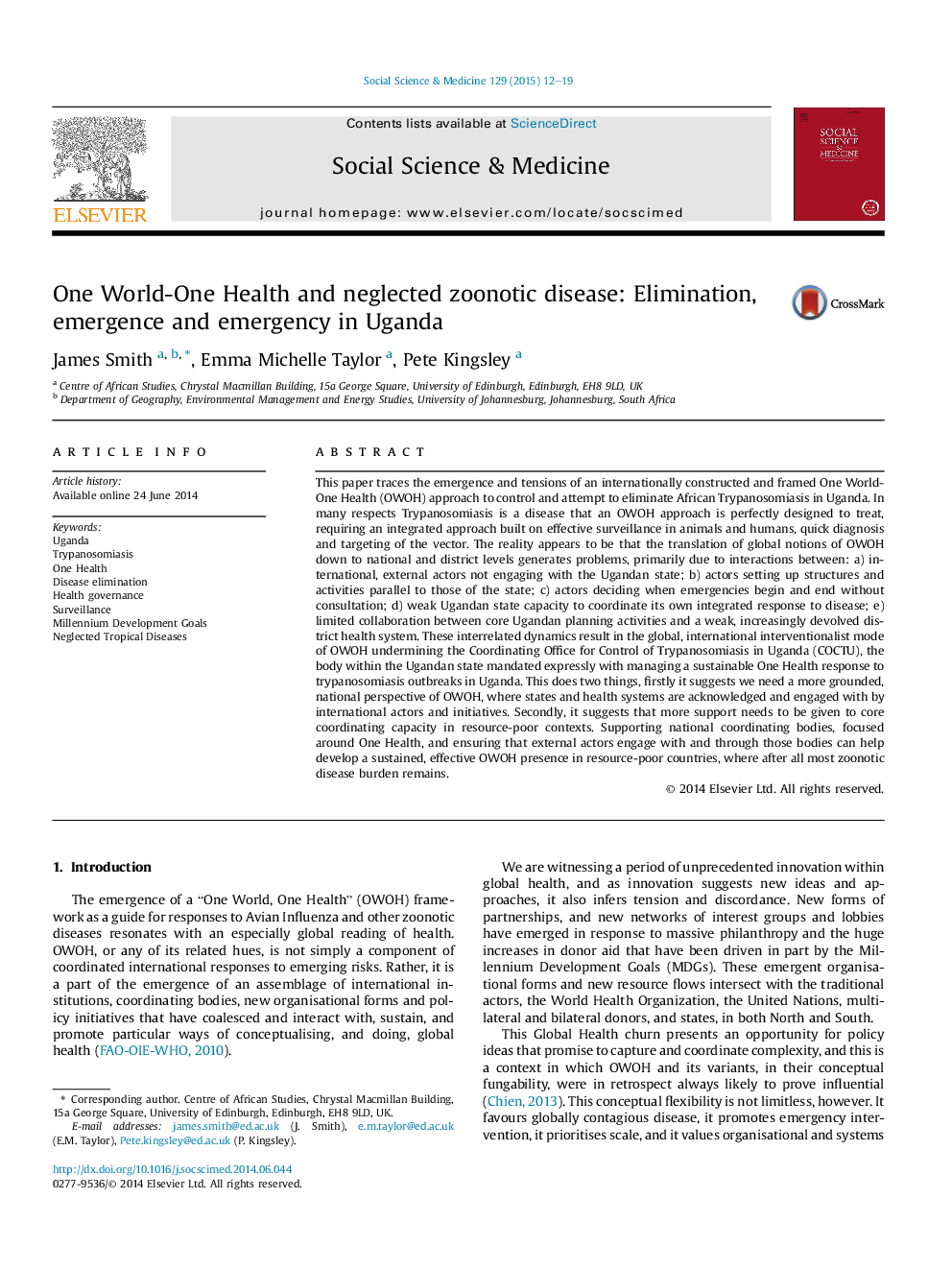| کد مقاله | کد نشریه | سال انتشار | مقاله انگلیسی | نسخه تمام متن |
|---|---|---|---|---|
| 952245 | 1476039 | 2015 | 8 صفحه PDF | دانلود رایگان |
• Trypanosomiasis is a disease that calls out for a One Health approach.
• Global perspectives of One Health do not properly engage with less developed countries and local contexts.
• Externally initiated One Health activities may parallel or undermine state health systems.
• Ugandan state capacity to coordinate is hampered by decentralization and resource constraints.
• Tensions between humanitarian and long-term approaches undermine One Health approaches.
This paper traces the emergence and tensions of an internationally constructed and framed One World-One Health (OWOH) approach to control and attempt to eliminate African Trypanosomiasis in Uganda. In many respects Trypanosomiasis is a disease that an OWOH approach is perfectly designed to treat, requiring an integrated approach built on effective surveillance in animals and humans, quick diagnosis and targeting of the vector. The reality appears to be that the translation of global notions of OWOH down to national and district levels generates problems, primarily due to interactions between: a) international, external actors not engaging with the Ugandan state; b) actors setting up structures and activities parallel to those of the state; c) actors deciding when emergencies begin and end without consultation; d) weak Ugandan state capacity to coordinate its own integrated response to disease; e) limited collaboration between core Ugandan planning activities and a weak, increasingly devolved district health system. These interrelated dynamics result in the global, international interventionalist mode of OWOH undermining the Coordinating Office for Control of Trypanosomiasis in Uganda (COCTU), the body within the Ugandan state mandated expressly with managing a sustainable One Health response to trypanosomiasis outbreaks in Uganda. This does two things, firstly it suggests we need a more grounded, national perspective of OWOH, where states and health systems are acknowledged and engaged with by international actors and initiatives. Secondly, it suggests that more support needs to be given to core coordinating capacity in resource-poor contexts. Supporting national coordinating bodies, focused around One Health, and ensuring that external actors engage with and through those bodies can help develop a sustained, effective OWOH presence in resource-poor countries, where after all most zoonotic disease burden remains.
Journal: Social Science & Medicine - Volume 129, March 2015, Pages 12–19
